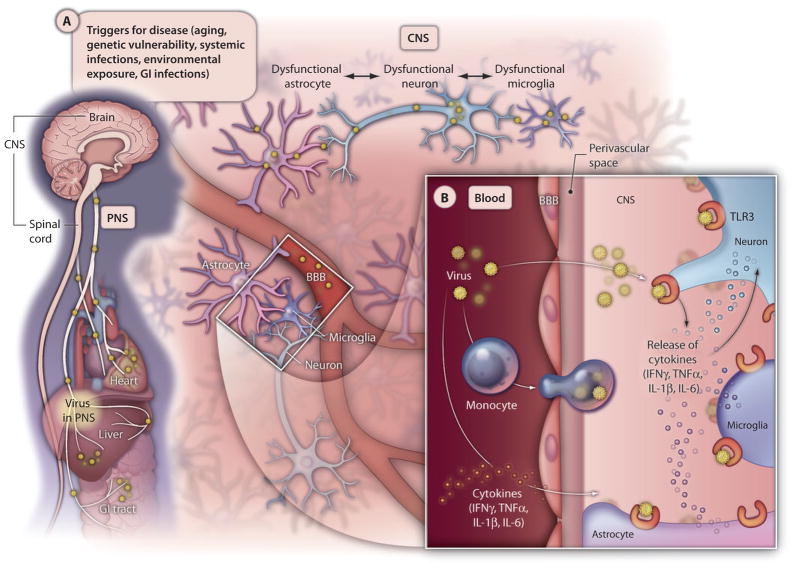Fig. 1. Driving dysfunction.
(A) Triggers of neurodegeneration. Idiopathic neurodegenerative diseases result from the combined action of multiple risk factors that include genetic predisposition, age, and environmental triggers, such as toxins and inflammatory responses involving microglia and astrocytes. In one such scenario, common viral infections can trigger peripheral local inflammatory responses, which lead to early neuronal and glial dysfunction in the CNS. Peripheral inflammatory reactions can also initiate neurodegenerative changes in the PNS, which are often associated with the preclinical phase of many neurodegenerative diseases. Such induced acute or chronic inflammation, involving cytokines and activated glial cells, could therefore be responsible for the priming of the PNS and CNS to degeneration by reducing the threshold for irreversible neuronal damage resulting from any subsequent neurotoxic trigger. Genetic susceptibility to neurodegeneration can also accelerate neuronal damage in response to inflammatory triggers. (B) Viral invasion and inflammation. Viruses can trigger neuronal dysfunction by direct cytolytic effect, direct neuronal priming, or bystander inflammatory reactions. Neurotropic viruses can reach the CNS by crossing the BBB or via peripheral nerves. The infection of neurons induces acute cell death, which is accompanied by secondary inflammatory reactions. Such neurotropic viruses often induce fatal encephalomyelitis. Nonneurotropic viruses can also invade the brain and trigger local CNS inflammation. Neurons sense and respond to viruses through the expression of TLRs (shown here as TLR3), which leads to the activation of an intracellular signaling cascade culminating in cytokine and chemokine secretion. The activation of neuronal TLRs by viral challenges and the primary inflammatory reactions may exert a priming action directly on neurons, rendering them more vulnerable to neurodegeneration.. GI tract, gastrointestinal tract.

